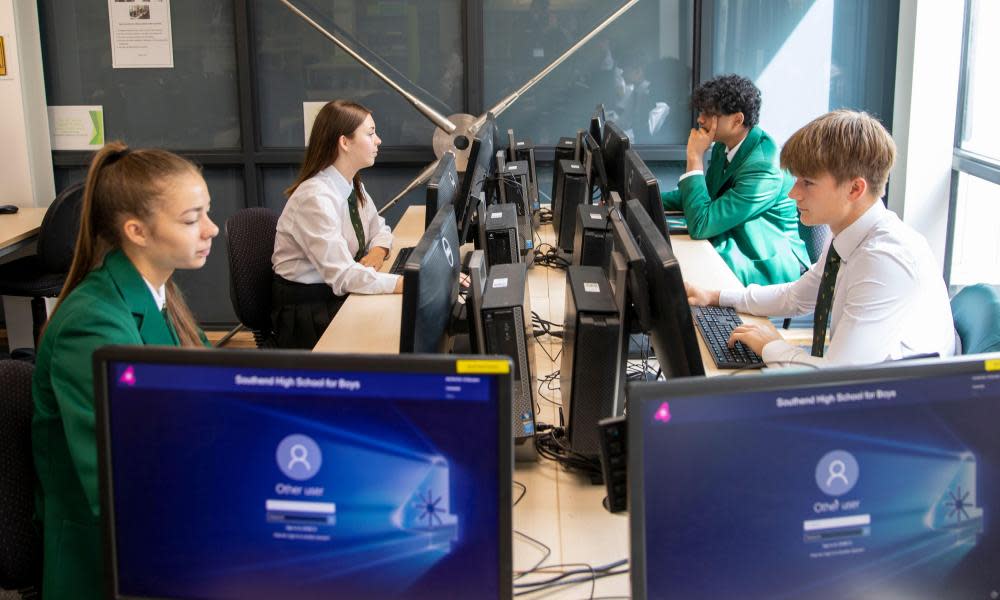The Guardian view on dog-whistle Tories: culture wars in the classroom

The chairman of parliament’s education select committee has produced a report designed not to illuminate a problem but divert attention from it. Conservative MP Robert Halfon and his colleagues think that “white working-class” pupils have fallen behind because of the use of terms such as “white privilege”. They suggest that there is an “industry” benefiting non-white people. This is a ludicrous culture war stunt to whip up animosity without addressing real and growing problems of inequality and disadvantage.
In Mr Halfon’s world, the “white working class” is the victim of unfair racial competition in which it is outperformed by other minority ethnic groups. The framing is incendiary, and, as the report admits, the data is ropey. Eligibility for free school meals is a crude proxy for disadvantage. The support goes to children with parents who are not usually working; or are not employed more than 16 hours a week; or have very low incomes. How can Mr Halfon make claims about the “white working class” when he is in fact talking about the poorest 13% of the total white cohort in English secondary schools?
This is dog-whistle politics. MPs ought to be embarrassed by the way the report has been sold and disown its packaging. Despite a decline in the number of routine workers in Britain, a majority (60%) of people identify as working class. This majority might reasonably assume that when Mr Halfon talks about “white working-class” failure, he is referring to most white students, not the one in eight referenced by the free school meals data. Official statistics show that for the 88% of pupils not in receipt of free meals, white British children are ahead, in GCSE English and maths, of their black Caribbean, Pakistani and Gypsy/Roma heritage counterparts.
There ought to be special help for the poorest. Sir Michael Marmot’s review into social divides last year unearthed a striking finding: that since 2010 such children made more progress in poorer areas of England than in richer ones. Clearly, poverty is bad for attainment. What was breaking the association between deprivation and lower outcomes in those places? Being a poorer child among more privileged children may lead to feelings of exclusion. Sir Michael suggested that in deprived districts of Manchester and London, support services and interventions in schools had mitigated the impact of poverty. Other places could be funded to mimic such strategies.
But this is anathema to Tory-led governments, which since 2010 have failed pupils across the board. Sure Start centres and libraries were closed. In the last decade, there were cuts of 8% to school spending per pupil in England in real terms. Society suffers from a gradient of disadvantage. The state should flatten it with spending to promote social cohesion. The committee’s more sober proposals have been lost in headlines designed to cause division. The report articulates a fury without disturbing the government’s strategy of dressing up meagre spending increases as mammoth ones. In places it lurches into propaganda: Family Hubs, the 2019 Tory manifesto replacement for Sure Start, are “supporting disadvantaged white families in the early years”. Democracy is a loser when parliamentary reports end up lubricating, rather than scrutinising, government policy.

 Yahoo Movies
Yahoo Movies 
